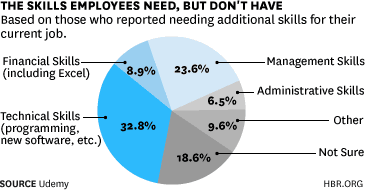Neutral Perspective
Invest in workers' skills

Although the common debate over outsourcing and offshoring deals with the positive and negative perspectives on the business practice, there are those who are not necessarily concerned with outsourcing itself, but with the development of workers’ skills domestically to enhance their overall job prospects. According to Steven Clemons, journalist and editor for the award-winning Christian Science Monitor, the discussion about offshoring and outsourcing is not merely centered on pros and cons, but on what politicians can do to improve the quality of American labor. He reasons that politicians should focus on smarter policy and a road map that invests in academic resources and high-tech ingenuity. Likewise, it is the responsibility of politicians to sponsor bipartisan policies that invest in the job and technology skills of Americans.
This perspective is both effective and reasonable, as it calls upon politicians rather than business people to make a change for the betterment of U.S. citizens. After all, in our capitalist system, business people have tremendous freedom to operate as they please as long as their operations do not violate the policies and laws of the land. Enforcing anti-outsourcing policies may interfere with that capitalist system, which would be far more difficult than simply calling upon politicians to enact policies that build workers’ skills and assist them in finding employment. Besides, building American workers’ skills and human capital creates more valuable labor for firms, which will persuade them to keep more jobs domestic due to quality enhancements, as Clemons states in his article. Rather than focusing on controlling firms, which could be extremely difficult and perhaps even dangerous for the economy, politicians should focus on improving the country’s workforce.
Retrain workers instead of protecting them
Dan Fastenberg, reporter for AOL Jobs, who originally argued that outsourcing creates jobs in the United States though greater innovation and economic growth, also stated that workers need to be retrained for jobs that are still needed in the economy, instead of having their jobs protected. Here, there seems to be a common thread between Clemons and Fastenberg that training workers and enhancing their skillsets is essential to keeping jobs domestic and ensuring that those jobs are valuable to the economy in the long run. Those jobs cannot be easily replaced by foreign workers, robotics, or other increases in capital.
By avoiding the binary debate of whether outsourcing is positive or negative, greater attention may be drawn toward building the skills of American workers, rather than simply protecting those jobs, increasing economic growth and the job prospects of said workers. While this point of view does not oppose the view that outsourcing is a beneficial practice, it is still important to consider, since it puts the onus of change on a different stakeholder group–politicians–instead of business people. The view argues that building skills is paramount to securing domestic jobs, so attempting to stifle or promote outsourcing itself is unnecessary.